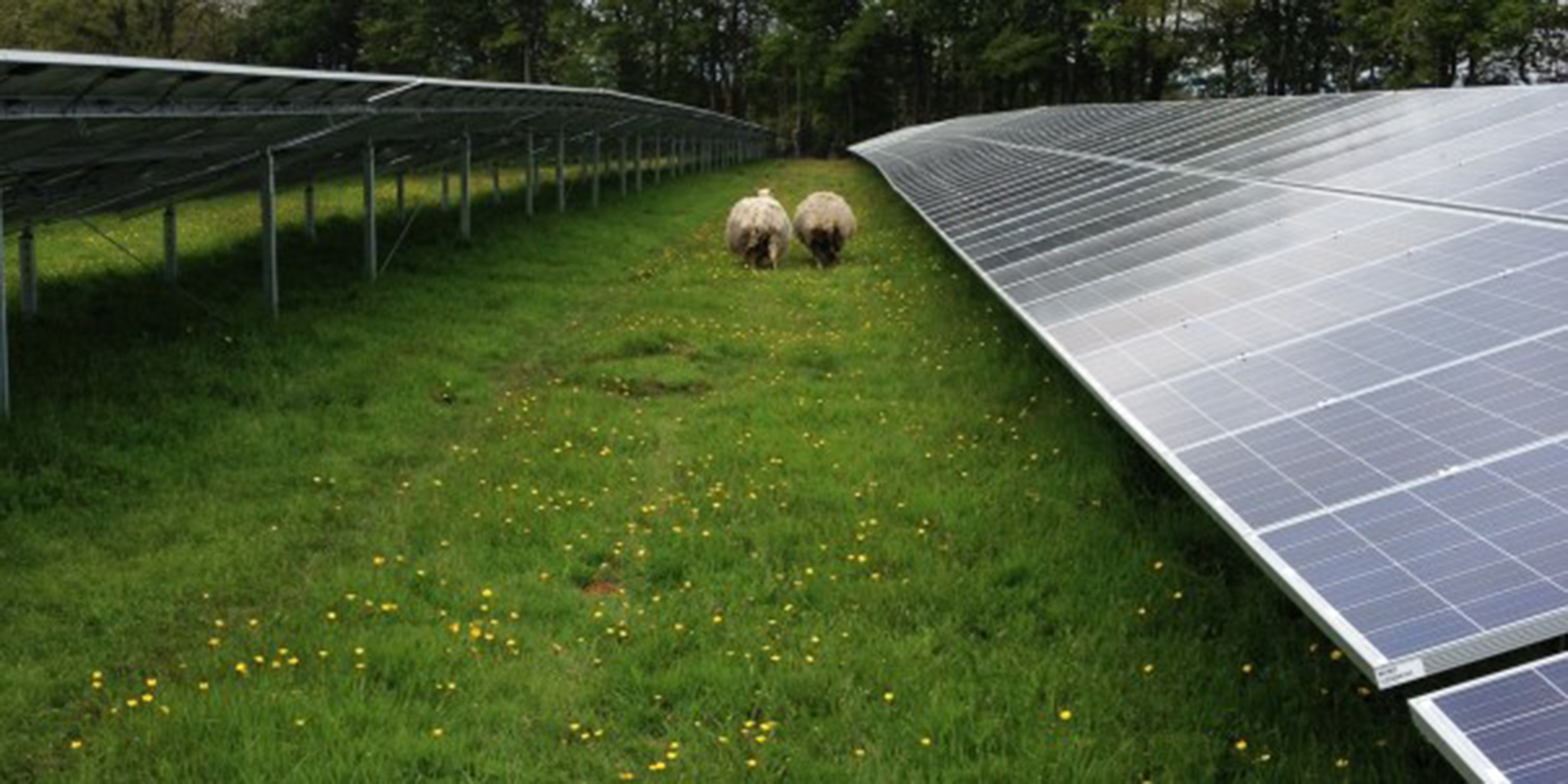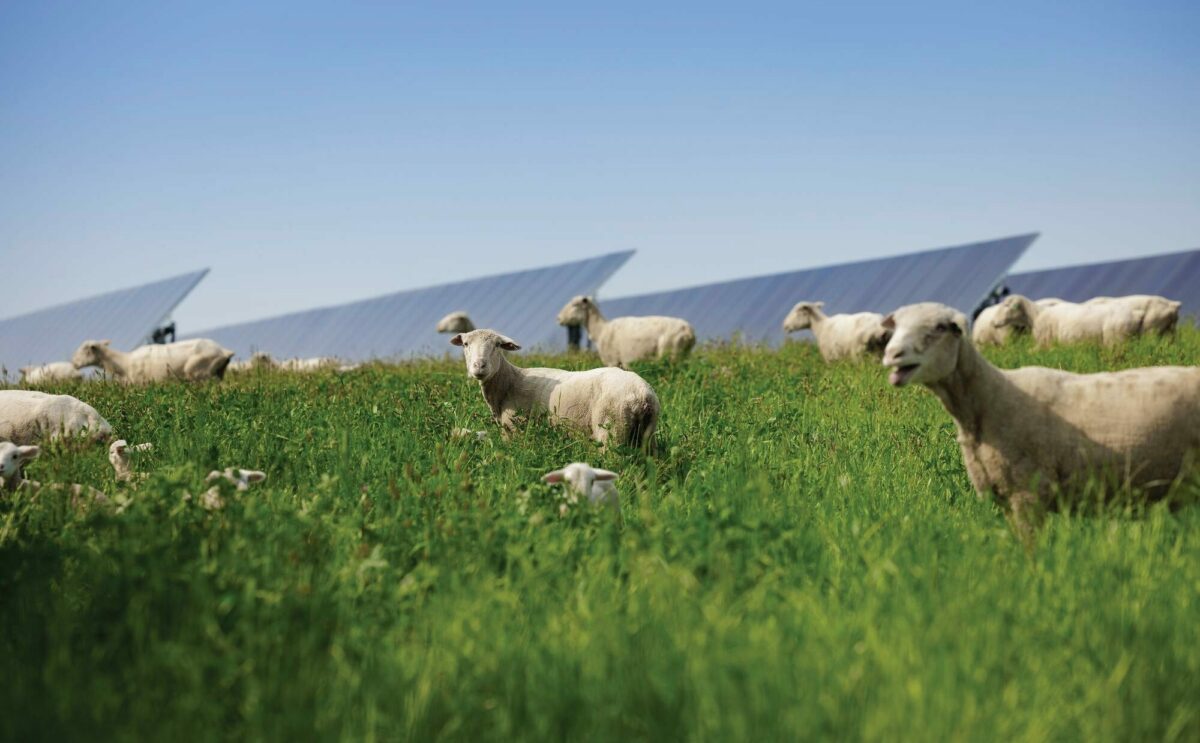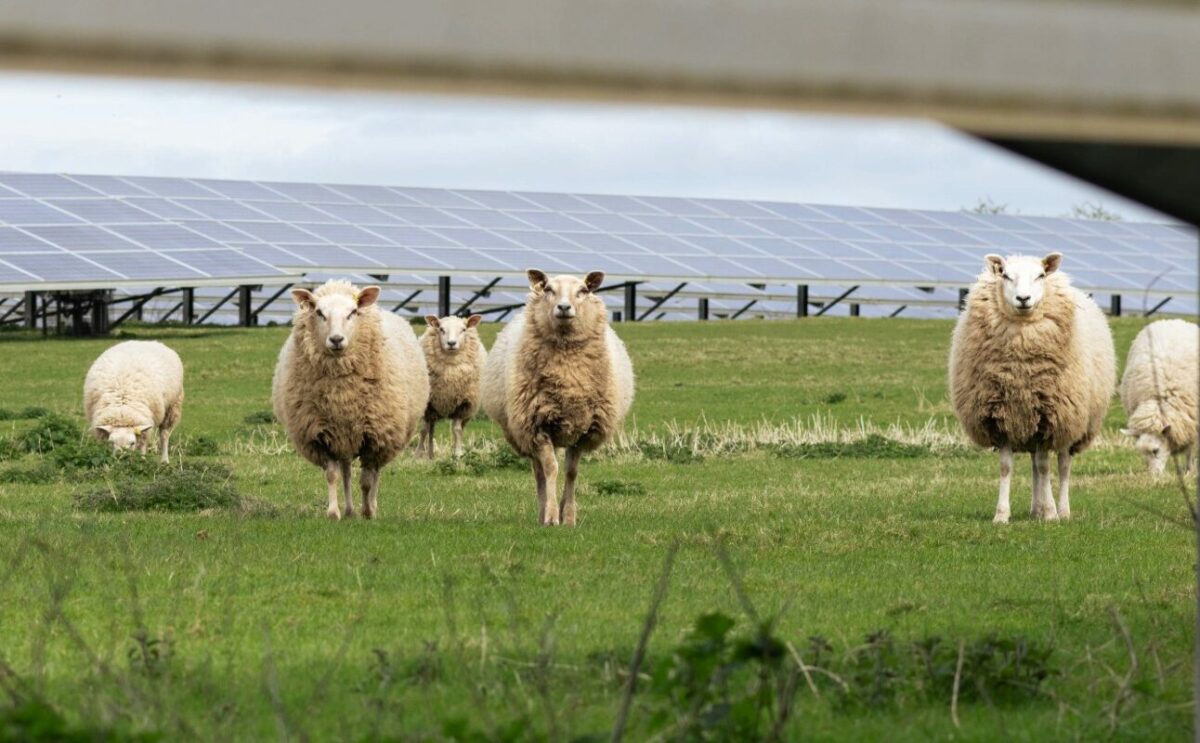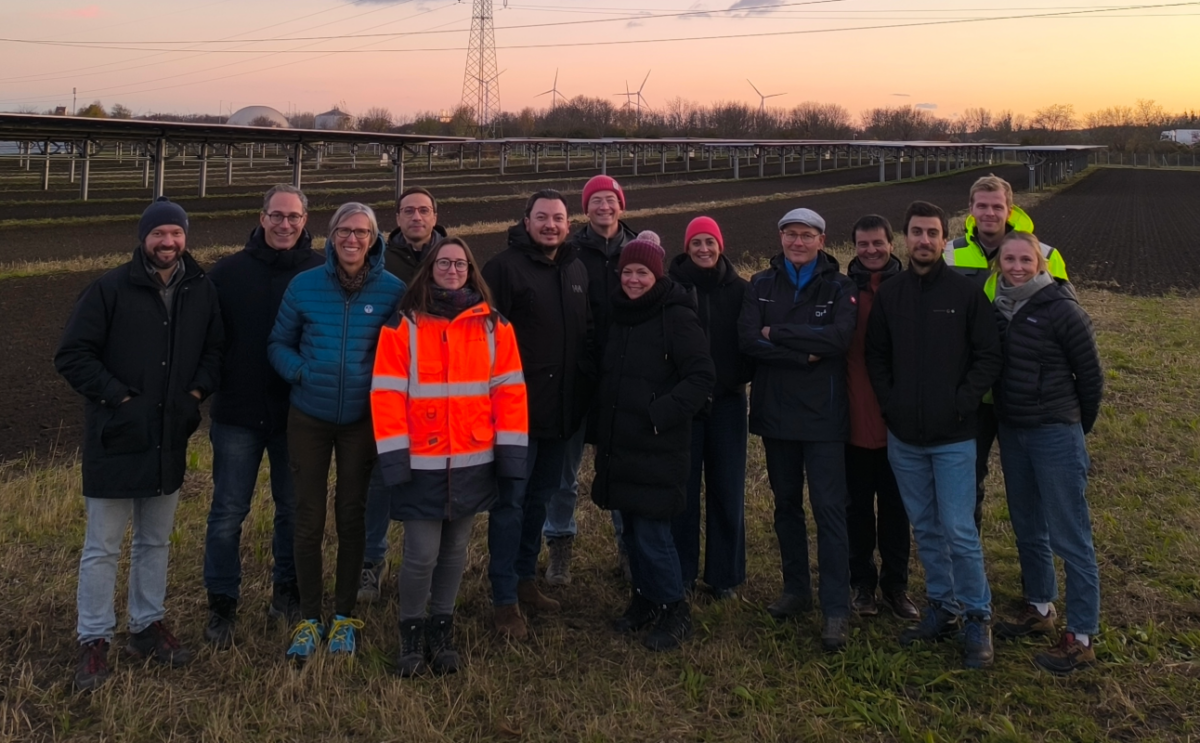NFU Launches Best Practice Guidance For Solar Farms
A new guidance by the NFU showing best practices for solar farms
New guidance compiled by the NFU and published by the BRE National Solar Centre shows how solar farms can be combined with continued agricultural land use for small livestock such as sheep, chickens or geese. Describing recent experience and best practice for the integration of ground-mounted solar PV with conventional agriculture, the guide complements previous publications on planning and biodiversity management for solar farms.
The NFU led a working group to develop this guidance with solar farm developers and the Solar Trade Association under the auspices of the government’s Solar PV Strategy. The agricultural sector and solar industry together have taken the opportunity to lead the debate and secure greater public confidence in multi-purpose use of land.
According to NFU Vice President Guy Smith, “It is clear that renewable energy can support profitable farming, underpinning traditional agricultural production with additional returns that make businesses more resilient. This guidance document shows how solar farms can indeed be multifunctional, simultaneously meeting food and energy needs as well as enhancing biodiversity. Only a negligible land take is required to make a major contribution to Britain’s clean energy needs, so the future looks bright for solar grazed lamb and free-range solar chicken.”
Devon sheep farmer Gilbert Churchill, who diversified into solar power last year, hosted the press launch of the ‘Agricultural Good Practice Guidance for Solar Farms’. “Solar is environmentally friendly and gives me a secure regular income”, he added. “It’s a lifeline…that will safeguard the farm’s survival for the future.”
It has been proposed that the presence of livestock, where solar farm agreements maintain the land ‘at the disposal’ of the farmer, could allow the land to eligible for the Basic Payment Scheme from 2015. However Defra is still reviewing the BPS rules and has not yet made a final decision on eligibility of grazed solar farms.
But with a new generation of farms evidently producing both food and energy from the same land, perhaps the ‘solar versus food’ debate is now over?
If you would like to learn more about the benefits of solar farms and how they can actually improve biodiversity, please contact us via email or call us on 0333 200 0755.
News
13 Feb, 2026
Hett Moor Solar Farm awarded a contract in UK AR7 renewables auction
Lightsource bp has been awarded a Contract for Difference (CfD) for Hett Moor Solar Farm in the UK Government’s latest renewables auction, AR7.
26 Jan, 2026
Farming and energy – working side by side
Sheep grazing on solar farms combines agriculture with solar electricity generation, enabling livestock to graze and crops to grow alongside and beneath solar panels.
21 Jan, 2026
Exploring cutting-edge AgriPV innovations during site visits in Austria
Deepening our understanding of how solar energy and agriculture can sustainably coexist at scale by learning from pioneering projects across Austria.




